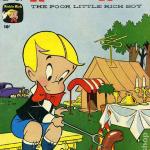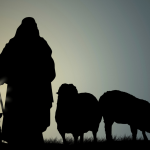GODSTUFF
SPIRITUAL WISDOM FOR HARD TIMES
Lately, I’ve been hearing from a lot of folks who are having a hard time, and not just financially. For some of us, the economic downturn has led to a spiritual free fall.
So I asked some Chicago-area faith leaders what they have to say to people who have lost their jobs, homes, tuition and sense of security.
What do they say to congregants who feel as if God hasn’t provided and isn’t going to?
++++++++++++
“My theology tends to be a theology of the cross, which doesn’t always preach well during times of unexpected suffering. I believe fundamentally that it’s through the cross and the resurrection of Christ that we find our hope, and that the suffering of Christ means that we are never alone in our suffering. It’s relatively easy for a pastor to say to someone who is struggling, ‘Trust in God’s promises, and be confident that God is right there with you in your suffering.’ But trusting in God’s promises won’t put food on the table or pay the mortgage. So when it comes to parishioners’ financial struggles, it’s probably more comforting to hear the pastor say, ‘I don’t have any easy answers for you. But I’m praying for you, and you’re surrounded by a church community whose prayers and love will continue to support you. And when we have doubts or struggle with despair, still God does not abandon us.’ “
— the Rev. Elizabeth Musselman,
Lutheran Campus Pastor at the University of Chicago
“When a Muslim faces loss — in worldly provisions, health or of loved ones — the driving recognition is that ‘Unto Allah belongs everything and unto Allah shall all return.’ Hence, when one loses a job or health insurance or a drop in her 401k, the understanding is that these were blessings from the Lord entrusted to us for use as best possible in His way. Should He deem fit for us to be deprived of these bounties, a Muslim is to remain content that what did not truly belong to him has been taken away by the Lord. As ‘believers,’ we must believe there is Khair [good] in what the Lord decrees for us! Muslims are exhorted to remember the Lord at all times but particularly when in distress. …
“A key condition for such ‘turning to the Lord’ is humility in acknowledging His Mastery over my life and those around me and trust/faith that He knows best what is good for me and when. Interestingly, particularly when Muslims face economic difficulty, they are also asked to give – from what ever they have, be it financial, physical or intellectual assets – the understanding being that ‘by being merciful to others, I may become deserving of the Mercy of the All-Merciful.’ When complying in this manner, a believer is promised that ‘the Lord will provide for you in ways you can not even imagine!’
“In essence, these distressing times, especially with economic turmoil, should serve as a wake up call for me to re-affirm my subscription to the commandments of the Divine, re-focus my sincerity of intent and purity of action, and re-energize my absolute trust and faith in the Lord and His omnipotence over my entire life. These difficulties are opportunities to confirm my sincere thanks for all the capabilities and assets I have been blessed with (particularly by looking to those less blessed than myself) and to ensure I have been using these blessings as best possible. Finally, as a true ‘believer’ a Muslim remains hopeful that the Lord will ease his/her difficulties and does her utmost to become deserving of this by more closely connecting to the Lord, elevating one’s faith and trust in the Lord, and increasing acts of goodness and mercy so as to attract His Mercy.
— Kareem Irfan,
former president, Council of Islamic Organizations of Greater Chicago
“God does not put someone through unemployment, and losing a job is not some kind of divine judgment. The practical advice I give is about doing the difficult work of facing your financial situation head on. There has been a lot of denial and avoidance around personal finance. You need to sit down, take an inventory of your debt, spending and lifestyle. If someone can’t do this on their own, I suggest they find a trusted friend or a financial planner to get clarity around their money. Then, a person is better able to make a good decision about job options. And through all of this, God’s presence is steadfast.”
— the Rev. George D. Smith,
Rector, St. Mark’s Episcopal Church, Glen Ellyn
“I’ve been telling people — particularly with people of faith – that the trick of the enemy sometimes is to make us think that God doesn’t care or doesn’t hear us or doesn’t answer us That’s a trick to lose our faith and when we lose our faith we become defeatest. The reality is that scripture doesn’t promise us not to go through trials, only that God will go through trials with us and we’ll win. We have to trust his character and his promises when we can’t trace his hand…. This is the time that your faith needs to rise up. I may go through some trial, but I’m not going to lose. I may lose my house, but I’m gonna make it … What you cannot allow is to begin to wonder, ‘Can I make it?’ Oh, you’re gonna to make it.”
— the Rev. Michael Pfleger,
Pastor, St. Sabina Catholic Church, Chicago
“During these turbulent times, I am encouraging my congregants to stay in touch with their spiritual community. Often, membership in religious congregations drops because families and individuals feel they cannot attend events or worship when they cannot pay. The reality is that this is an even more important time to maintain contact with our religious communities — for personal support, spiritual perspective and even networking opportunities. I have found that it is helpful when people are in crisis, financial or otherwise, to participate in synagogue life. One reason is that stepping into the larger world of Torah — its stories, drama and lessons – can help put things into perspective….
“Finally, religious leaders need to offer permission to congregants to prayerfully discuss with God their challenges. One of our great teachers, Rabbi Nachman of Breslov, encouraged his followers to spend at least an hour a day pouring their hearts out to God, to ask for help, to ask for support, and to honestly express their emotions … There is a prayer specifically for parnosseh [making a living], based on the biblical story of the manna, that has provided hope and encouragement when things seem bleak.”
— Rabbi Chava Bahle,
Congregation Makom Shalom, Chicago
“I would counsel them to stay close to their families, and communities for spiritual and moral support. As a Buddhist, I appreciate that things are changing constantly. Though we humans are not fond of change, things are shifting all the time. I don’t really frame things in terms of whether god is providing for me or not. I try to take responsibility for my life and my world. I try not to blame myself, or others, or god. I always seek to see myself as part of the problem. That way, I feel empowered to do something about it, instead of feeling like a victim.
“One of the most important and difficult spiritual truths we can learn as human beings, is how to harvest life’s difficulties by transforming them into greater compassion. It is the practice of turning lead into gold. We humans are powerful. Though we cannot control life’s circumstances, we can always chose how to respond. If we retract and shut down, so does the heart, and in many ways our life is diminished in this way. If we open, embrace and bear witness to our broken heart, we can touch that soft spot of vulnerability that is the source of our richness, compassion and true wealth. So it’s really an opportunity to remember what is enduring and important in terms of our core values.”
— the Rev. Robert Joshin Althouse Roshi,
Abbot, Zen Community of Oak Park
“We weep, laugh or offer sarcastic commentary on the Wall Street bums who got us into this mess. (We are keenly aware that we have culpability, too, but blaming someone else can be a decent numbing agent.) … The Gospel transforms more than just our hearts — it actually cares about all our ‘wobbly parts,’ to quote Bridget Jones. The Gospel transcends our current struggles and promises something called shalom — a promise that the world will one day be as it was intended.”
— JR Kerr,
Teaching pastor, Park Community Church, Chicago















